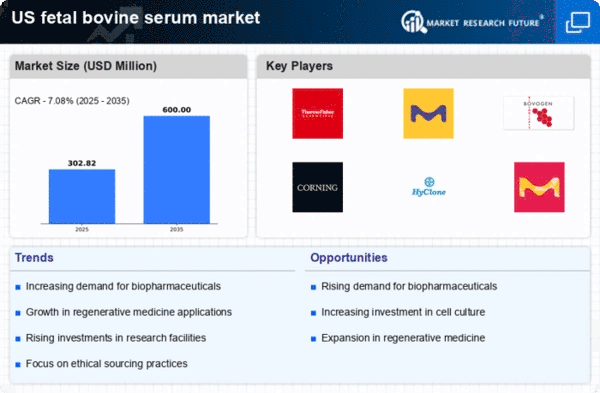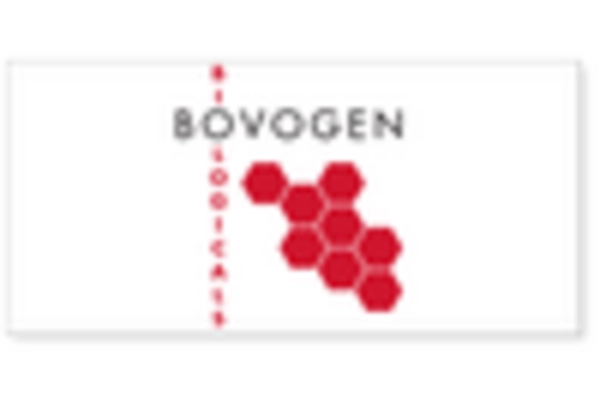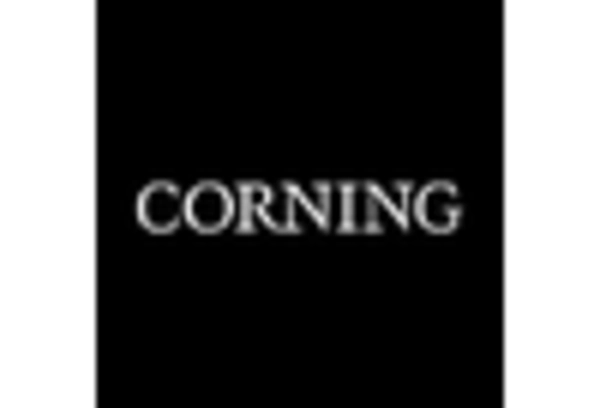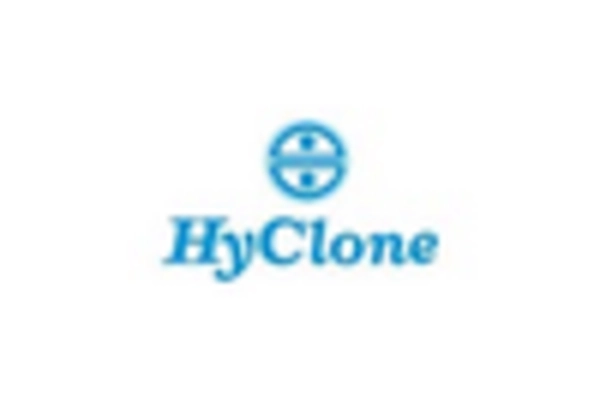Growth in Veterinary Medicine
The fetal bovine-serum market is also driven by the growth in veterinary medicine, where FBS is utilized for the development of vaccines and diagnostic tests for livestock and pets. As the livestock industry in the US expands, the demand for effective veterinary products increases, thereby boosting the need for fetal bovine serum. The American Veterinary Medical Association (AVMA) has noted a rise in pet ownership and livestock production, which could lead to a higher consumption of FBS in veterinary applications. This trend suggests that the fetal bovine-serum market will continue to thrive as veterinary medicine evolves.
Increasing Research Activities
The fetal bovine-serum market is experiencing growth due to the rising number of research activities in various fields, including biotechnology, pharmaceuticals, and regenerative medicine. As institutions and companies invest more in research and development, the demand for high-quality fetal bovine serum (FBS) is likely to increase. In the US, the National Institutes of Health (NIH) has reported a steady increase in funding for biomedical research, which could lead to a higher consumption of FBS. This trend suggests that the fetal bovine-serum market will continue to expand as researchers seek reliable and effective growth supplements for cell culture and other applications.
Expansion of Cell Culture Applications
The fetal bovine-serum market is significantly influenced by the expansion of cell culture applications across various industries. As the biopharmaceutical sector grows, the need for FBS in the production of vaccines, monoclonal antibodies, and other biologics becomes more pronounced. According to industry reports, the biopharmaceutical market in the US is projected to reach approximately $500 billion by 2025, which may drive the demand for fetal bovine serum. This growth indicates that the fetal bovine-serum market will likely benefit from the increasing reliance on cell culture techniques in drug development and production.
Regulatory Support for Biotech Innovations
The fetal bovine-serum market is positively impacted by regulatory support for biotechnology innovations in the US. Government agencies, such as the Food and Drug Administration (FDA), are actively promoting the development of new biotechnological products, which often require FBS for research and production. This regulatory environment encourages investment in biotech companies, leading to an increased demand for fetal bovine serum. As the FDA continues to streamline approval processes for biopharmaceuticals, the fetal bovine-serum market may see a corresponding rise in consumption as companies seek to meet regulatory requirements.
Technological Advancements in Serum Production
The fetal bovine-serum market is influenced by technological advancements in serum production processes. Innovations in serum collection and processing techniques are enhancing the quality and consistency of FBS, making it more appealing to researchers and manufacturers. As companies adopt these advanced methods, the overall efficiency of serum production improves, potentially lowering costs and increasing availability. This could lead to a more competitive market landscape, where the fetal bovine-serum market benefits from enhanced product offerings and increased demand from various sectors, including research and biopharmaceuticals.
















